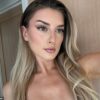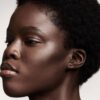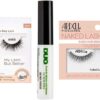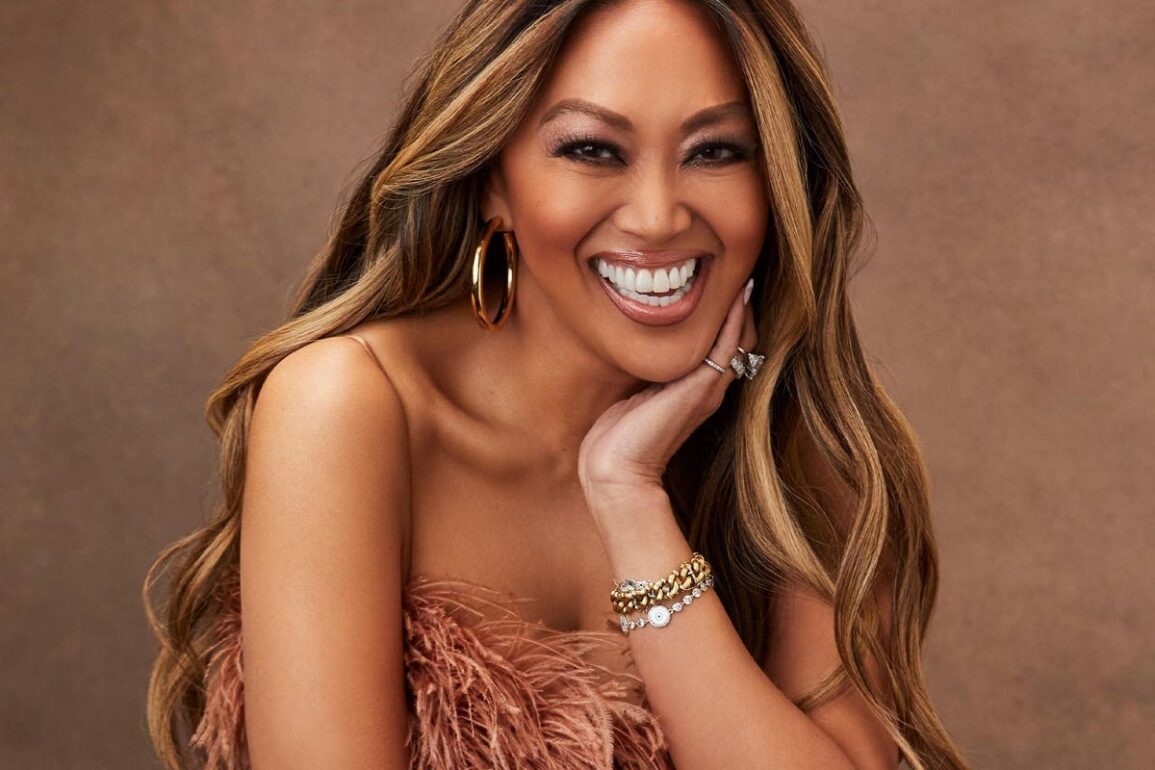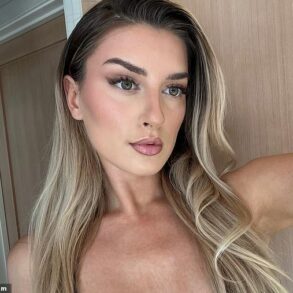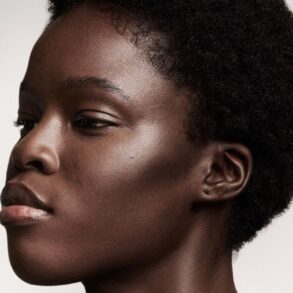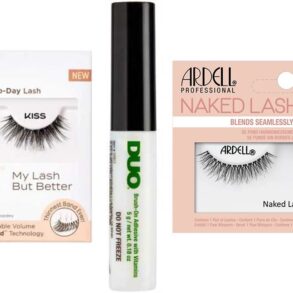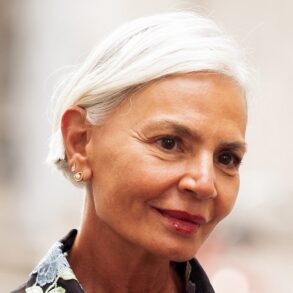
The women on Forbes’ 50 Over 50 list are executives and CEOs, mothers and caretakers, leaders and founders. And some are all of the above. They are solid proof that women at any age can be celebrated for so much more than unrealistic expectations, and harmful stereotypes that women face as they age. It takes courage for a woman—and a brand—not to aim for formulaic beauty standards.
It’s risky to launch a campaign that goes against the norms. Makeup guru Laura Geller, 65, took this risk and changed the marketing strategy of Laura Geller Beauty in 2021. “I think it confused some people originally,” she says, quoting her friends’ concerned calls: “‘You put up a before-and-after of Bethany Frankel, but in the after she looks older, she looks really wrinkled.’”
They were wrong. Instead of conventional Photoshop techniques, she used “reverse Photoshop,” purposely adding wrinkles and fine lines to showcase the aging effect. Intentionally aging, Frankel still looked beautiful.
Let’s face it: women in their 50s and beyond will be around for several more decades—statistically living longer than men—and control 95% of household purchasing decisions. So while many retailers and brands still believe a young target to be the future, they’re missing out on the combined spending power of women over 50: $15 trillion, representing 27% of all consumer spending. However, brands dedicate just 5% to 10% of marketing budgets to engage these female “super consumers,” according to the Harvard Business Review.
“Society really has overlooked middle-aged women and we are the backbone of society,” says Geller. Even though she believed that her brand was “designed for women from 19 to 90”, she now sees how she was trying to be everything to everybody. Her loyal customers reacted and started questioning why, since she was targeting women of all ages, the women seen on display in her ads and on social media were exclusively young models.
“We weren’t speaking to my 40-plus woman,” she says, noting this group has grown more vocal over the past few years. “They want to be accepted.” She and her team listened and read, heard and responded. In March 2021, her company made the bold decision to exclusively feature women over 40 in their marketing. “And that’s when everything changed for us.” Their projected 2023 revenue will be up 65% over 2022.
Mally Roncal, 51, founder of Mally Beauty, says she framed her life through the beauty lens, always wanting to affect people in a positive and healing manner. A pre-med in college, she soon realized that wasn’t her path.
Geller and Roncal were in their early 20s when they started out as makeup artists. They soon worked with some of the world’s most famous faces—from Broadway performers to Beyonce and Jennifer Lopez—as well as everyday women. And both eventually decided to start their own brands were acquired by AS Beauty, a privately-owned portfolio of cosmetics brands (Laura Geller Beauty in 2019 and Mally Beauty in 2021).
Mally Roncal, 51, founder of Mally Beauty
Courtesy of Mally Beauty
“I knew there was more for me,” says Roncal. “In the sense that I wanted to do more for everyone, not just one client. I wanted to teach and create products that made people feel beautiful.” She says starting Mally Beauty in 2005 was the highest point of her career.
Geller opened her own store on New York City’s Upper East Side in 1997 and launched her first products the same year. While the store closed after 21 years, Laura Geller Beauty remains the longest-standing cosmetics brand on QVC and was noted among the nation’s fastest-growing digital beauty and cosmetics brands this year.
Also a top-seller on QVC since 2005, Roncal’s lively personality is featured across the company’s social media platforms. With success: her best-selling product, Face Defender Clear Setting Balm, went viral on TikTok, resulting in a 15,000% increase in sales for the brand and now sells over 200 units daily. On top of videos, she started her own show on QVC earlier this year. “Over 50 and Fabulous” creates a safe space, sharing life advice and keeping it real about topics that may seem taboo.
“When you’re over 50, all of a sudden, everything becomes less secretive,” says Roncal. “We want to talk about menopause. We want to talk about hot flashes.”
Geller recalls how when she started her career, she didn’t know what menopause was. Her older female clients “would perspire while I was putting their makeup on, and I bought fans that I would always keep on their faces so that they were cool while I was doing their makeup,” she says. Today, she says that she’s her own guinea pig. “If I can crack the code on my face, it’s gonna work on anybody.”
Geller’s transformative efforts took various forms, featuring real women—“A gaggle of Geller gals, everything from 40 to 80+,” she says—and joining forces with icons like Fran Drescher, Paulina Porizkova and Bethenny Frankel. In 2022, the brand established “National Mature Women’s Day” on April 9th, offering age-based discounts (such as 70% off for 70-year-olds) and dedicated campaigns, such as 2023’ “The Invisible Woman,” which humorously tackled the sense of invisibility women experience after turning 40, featuring actress, author, and producer Ali Wentworth.
Age-related changes also involve accessibility, such as bigger labels or color-coding lipstick caps. Roncal’s own aging process has impacted her perception of makeup and textures, as well as her emotional journey. “The way you feel changes inside and out,” she says. Growing up as a caregiver to her mother, who battled breast cancer and lived 17 years beyond the initial prognosis, influenced her outlook. “She died at 49. So when I hit 50, I said, ‘I’m doing everything for you.’”
Women of all ages face social prejudice and impossible standards, but Roncal saw a change at 50. She started to care less about others’ opinions: “All of a sudden that s**t goes out the door,” she says.
Makeup can be a loaded topic—either “too much” or “not enough” or be “age appropriate”—women feel pressured to conform to certain looks. However, Roncal emphasizes that makeup isn’t a sign of insecurity; it’s an expression of self-love.
Observing how some women felt less pretty, sexy or viable after becoming grandmothers, Geller advocates for growing old gracefully and rejecting unattainable beauty ideals. She believes even a little makeup can have a powerful impact—boosting confidence and empowerment. “Feeling good on the outside makes you feel good on the inside,” she says.
“As much as I’d love to say it doesn’t matter what you look like, it’s not true,” says Roncal. Both women agree that beauty is how you feel about yourself and, while makeup isn’t necessary to be more beautiful, it’s a tool for more confidence.
Geller’s authenticity shines through in her work, her impact on people’s lives fuels her passion: “Hearing customers say, ‘You’ve changed my life’ or ‘I never thought I could do my makeup,’ and ‘I didn’t think it was okay to put makeup on at 50.’” Approaching 65, she came to understand the needs of women of all ages. “I really am her,” says Geller. “I think that’s what sets me apart.”
This post was originally published on this site be sure to check out more of their content.

